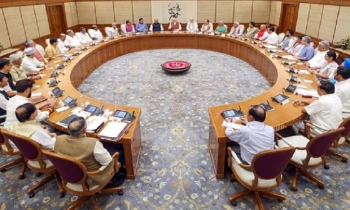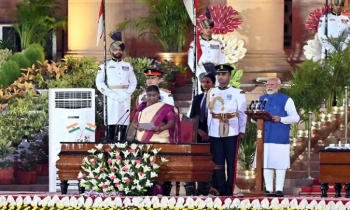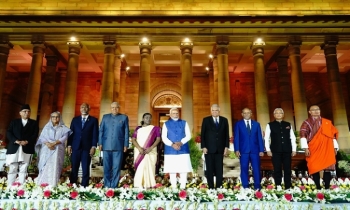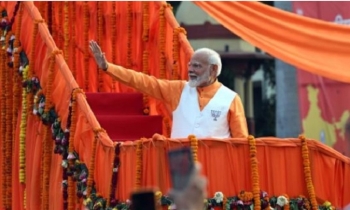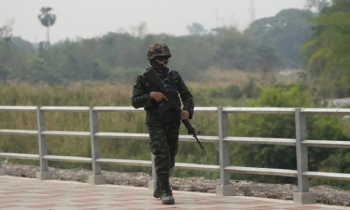Blinken defends Pakistan arms sales against Indian criticism
BI Desk || BusinessInsider
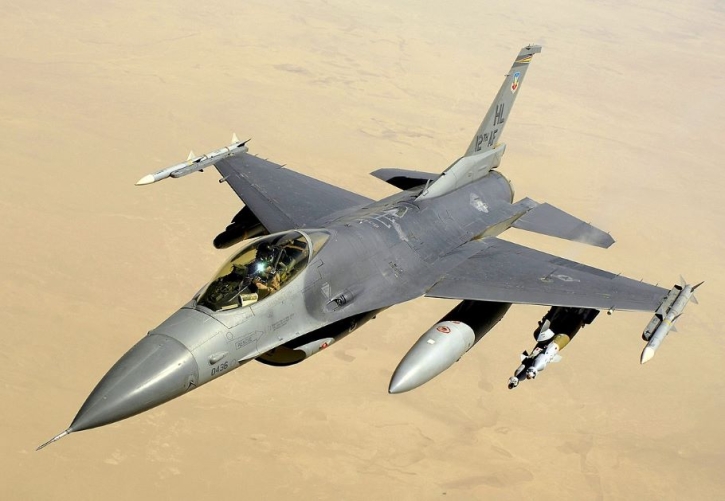
Representational image. Photo courtesy: Wikipedia.
US State Secretary Antony Blinken on Tuesday defended military sales to Pakistan after criticism from growing US partner India, which considers itself the target of Islamabad’s F-16 planes.
Blinken met in the US capital with India’s foreign minister a day after separate talks with Foreign Minister Bilawal Bhutto-Zardari, reports DAWN.
The US-Pakistan alliance, born out of the Cold War, has frayed over Islamabad’s relationship with the Taliban regime in Afghanistan.
The top US diplomat defended a $450 million F-16 deal for Pakistan approved earlier in September, saying the package was for the maintenance of Pakistan’s existing fleet.
The package does not include the sale of any new capabilities, weapons, or munitions and is aimed at the sustenance of Pakistan Air Force’s F-16 programme.
“These are not new planes, new systems, new weapons. It’s sustaining what they have,” the US state secretary told a news conference with his Indian counterpart, Subrahmanyam Jaishankar.
“Pakistan’s programme bolsters its capability to deal with terrorist threats emanating from Pakistan or from the region. It’s in no one’s interests that those threats be able to go forward with impunity, and so this capability that Pakistan has had can benefit all of us in dealing with terrorism,” Blinken said.
He added that the US had a “responsibility and an obligation to whomever we provide military equipment to make sure that it’s maintained and sustained. That’s our obligation”.
When asked to elaborate on the terrorism threats and the need for F-16s to counter them, Blinken said: “There are clear terrorism threats that continue to emanate from Pakistan itself as well as from neighbouring countries.
“And whether it is TTP (Tehreek-i-Taliban Pakistan) that may be targeting Pakistan, whether it’s ISIS-Khorasan, whether it’s Al-Qaeda, I think the threats are clear, well-known, and we all have an interest in making sure that we have the means to deal with them. And that’s what this is about.”
To another question about his discussion with FM Bilawal on improving ties between Pakistan and India, his advice to Pakistan in this regard and the latter’s response, Blinken said it would not be appropriate to “characterise Pakistan’s response”.
“More broadly, we always encourage our friends to resolve their differences through diplomacy, through dialogue. That hasn’t changed. It won’t change. It would not be appropriate for me to characterise Pakistan’s response, just as I wouldn’t characterise our friend’s response in a similar conversation,” he said.
Jaishankar did not criticise Blinken in public but on Sunday, speaking at a reception for the Indian community in the United States, he said of the US position, “You’re not fooling anybody.”
“For someone to say, I’m doing this because it’s for counter-terrorism when you’re talking of an aircraft like the capability of the F-16, everybody knows where they are deployed,” he said.
“Very honestly, it’s a relationship that has neither ended up serving Pakistan well nor serving American interests well,” he said.
Previously, the Indian defence minister had also conveyed reservations over the F-16 deal with his counterpart in Washington.
“I conveyed India’s concern at the recent US decision to provide a sustenance package for Pakistans F-16 fleet,” Indian Defence Minister Rajnath Singh had written on Twitter following what he called a “warm and productive” telephone conversation with US Defense Secretary Lloyd Austin.


